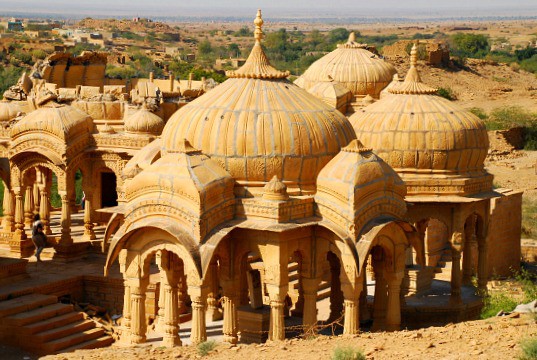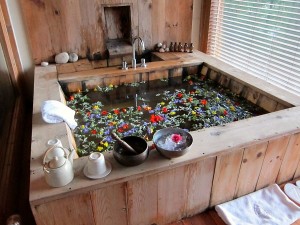
Bada Bagh, Jaisalmer
What is immersive travel?
It’s travel that takes you deep into a culture and changes you. Immersive travel can be voluntourism, solo travel, or long-term travel. It can be embarking on a spiritual path or a going to a health & wellness retreat. Or it can simply be an attitude.
It’s about being open to a new culture, learning from it, and letting it change your ideas, beliefs and assumptions about life and the world. If you go on a trip, and see things differently when you get back home — then, you have probably experienced immersive travel. Here’s a synopsis of my first three columns.
Are you a tourist or a traveler?
If you have men who will only come if they know there is a good road, I don’t want them, I want men who will come if there is no road at all.” ~ David Livingstone
There’s a difference between a traveler and a tourist. Maybe I’m old-fashioned: I prefer reading to television; trains to jets; long sojourns to quick getaways. I love reading stories about travelers who went abroad for months, even years, and became completely transformed. Like Ibn Batutta. He left his homeland, Morocco, to make a hajj (pilgrimage) to Mecca in 1325AD that should have taken 16 months. He didn’t return h ome for 24 years.
ome for 24 years.
In total, Ibn Battuta traveled for 30 years. He covered most of Africa, Europe, the Middle East, India and Southeast Asia, all the way to China, for a total of 75,000 miles (121,000 km) – a mileage record that held for more than 400 years. Batutta recorded his travels in a book called The Rihla (Journeys) of Ibn Battuta.
I think of the 19th century as the golden age of travel. People packed steamer trunks and ventured out into the world before there was any kind of tourism infrastructure. These people had adventures!
 Three hotels that offer the comfort of luxury with the joy of cultural immersion
Three hotels that offer the comfort of luxury with the joy of cultural immersion
When you think of immersive travel, you may think of living in a local’s house, eating home-cooked food and following the family’s daily rhythm. I do like staying in small guesthouses and homestays when I travel, but I also enjoy finding higher-end accommodation that tries to preserve the spirit of cultural authenticity.
The three hotels featured here ― the Bhakti Kutir in Goa, the Windamere Hotel in Darjeeling and the Uma Paro in Bhutan ― each combine the best of both worlds, the comfort of luxury with the joy of cultural immersion.
Have you found your soul culture?
There are many ways to experience “immersive travel.” You can travel somewhere to live for a time, or volunteer. You can study the culture, learn the language or master the arts. But the type of immersive travel I am writing about today cannot be engineered. You cannot make it happen.
I call it finding your “soul culture,” and it’s like falling in love. It just happens.
 Sometimes, people discover a corner of the world where they feel most at home. It is often in a country and culture far away, and far different, from their own, and it doesn’t make a lot of rational sense.
Sometimes, people discover a corner of the world where they feel most at home. It is often in a country and culture far away, and far different, from their own, and it doesn’t make a lot of rational sense.
People who found their soul culture always intrigued me. And, I admit, I was a bit jealous. Though I had traveled to many parts of the world, and lived in Tokyo, I had never felt that special affinity, and didn’t know if I ever would. Then, in late 2004, at about the same time the tsunami struck Southeast Asia, a personal tsunami of sorts hit me.
I was trying to recover from a series of devastating losses that had left me feeling flattened, and was enrolled in a yoga teacher training program. That’s when the idea of going to India for six months grabbed hold of me. Throughout that time period, I discovered that India is my soul culture.

Mariellen Ward is a freelance travel writer whose personal style is informed by a background in journalism, a dedication to yoga and a passion for sharing the beauty of India’s culture and wisdom with the world. She has traveled for about a year altogether in India and publishes an India travel blog, Breathedreamgo.com. Mariellen also writes for magazines and newspapers.








